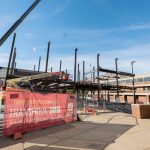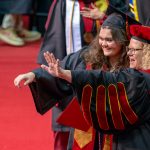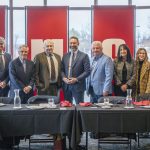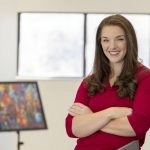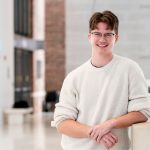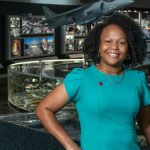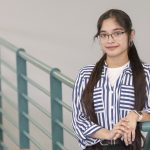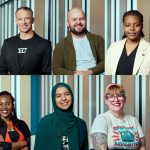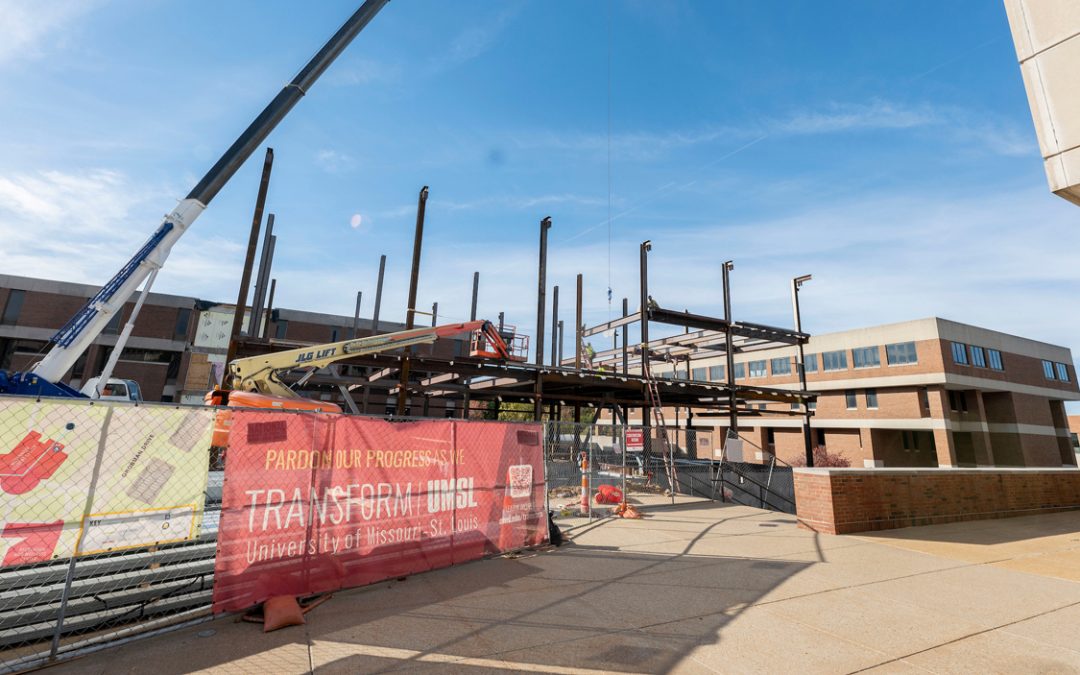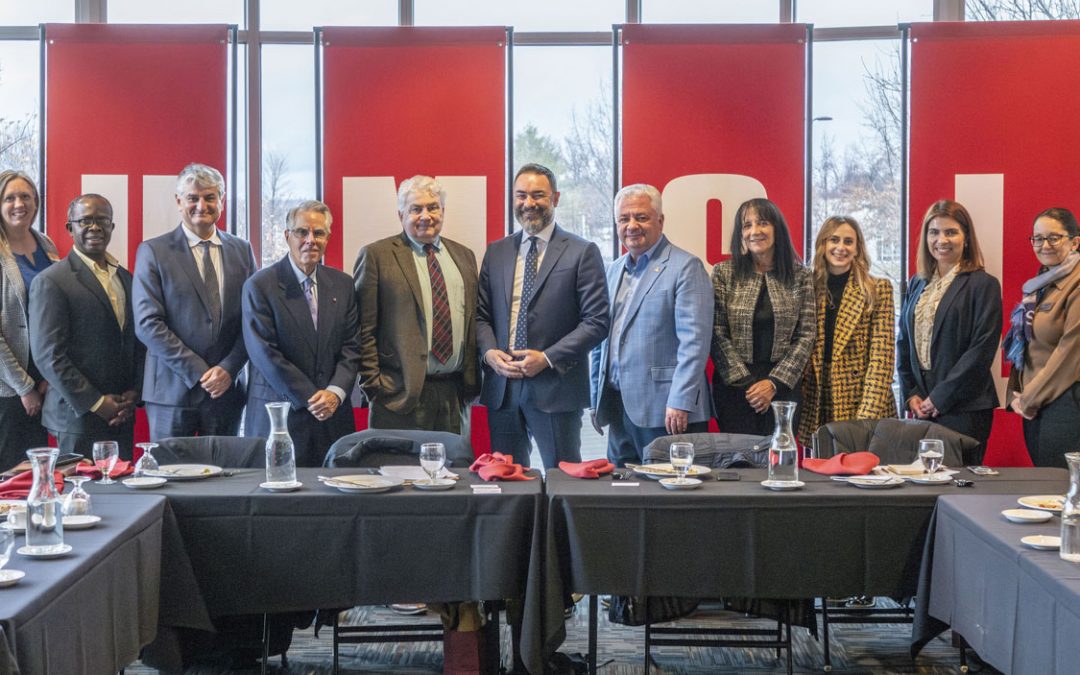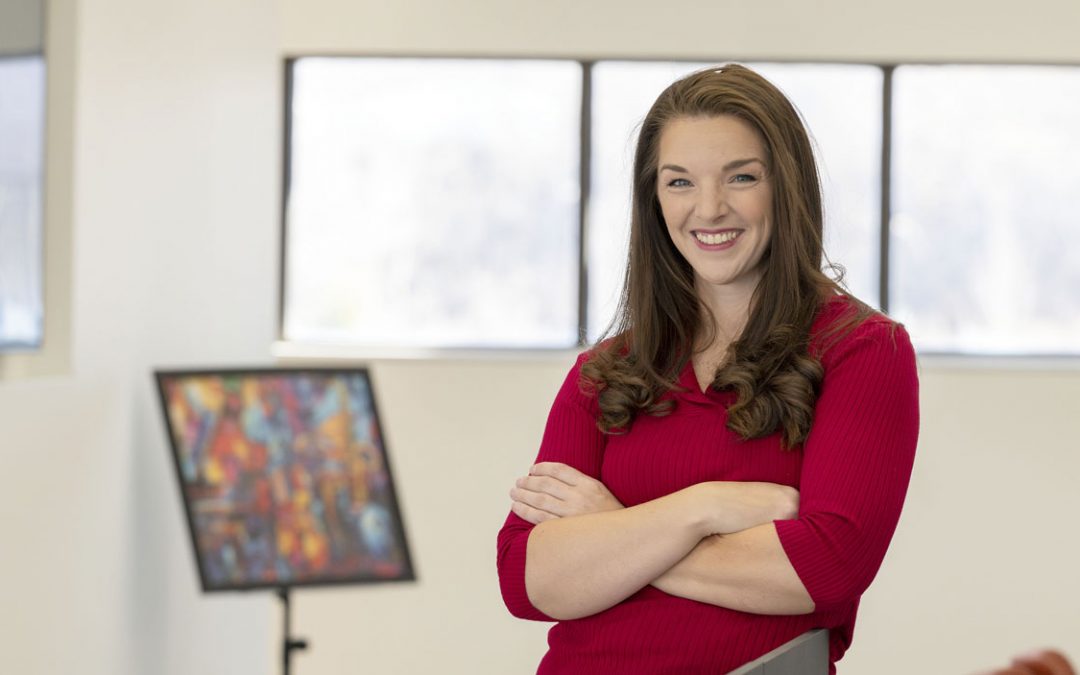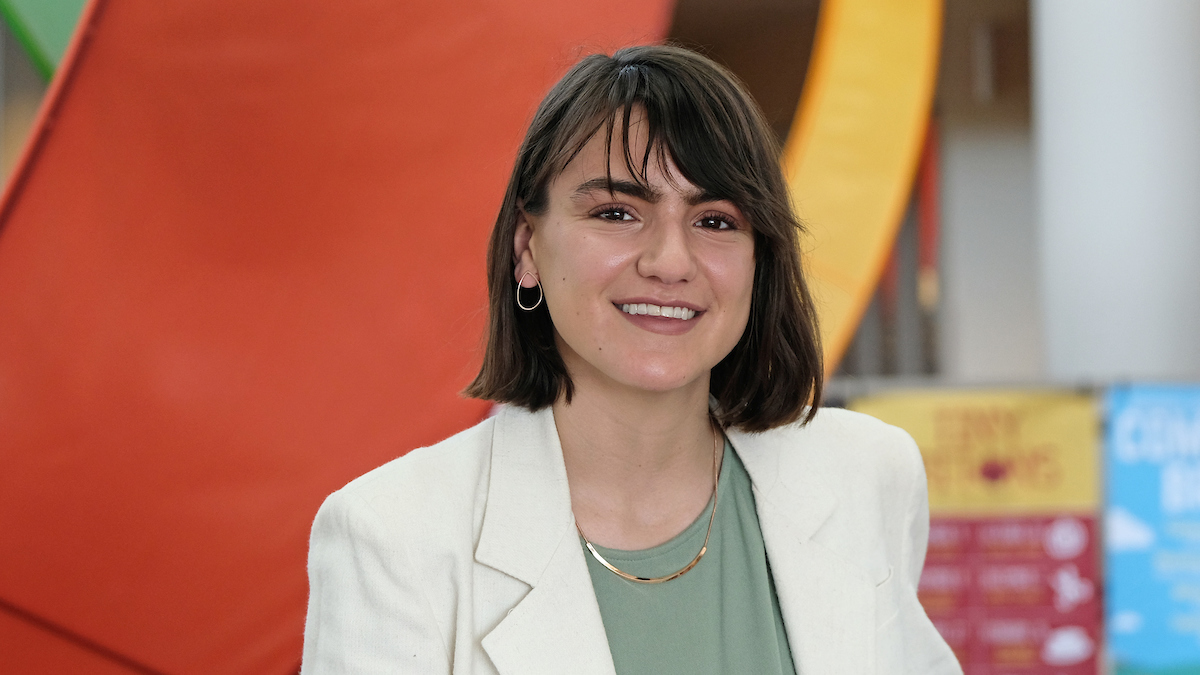
Junior political science major Jennifer Mossgraber was one of the 268 college students nationwide chosen to take part in the Newman Civic Fellowship program organized by Campus Compact. (Photos by August Jennewein)
Count Jennifer Mossgraber among the legions of Americans who found themselves drawn to public discourse and political debate during the course of the often-charged 2016 election season.
Mossgraber was just beginning her time at the University of Missouri–St. Louis as that campaign was entering its final stretch that fall. The native of Rochester, New York, had taken a few years off from higher education while living in Portland, Oregon, when she returned to school.
She wound up choosing to major in political science and getting involved in campus organizations like the Political Science Academy in part out of a desire to engage with decisions that shape America’s future.
Mossgraber now serves as the Political Science Academy president and has also joined the Associated Students of the University of Missouri, working as a voter registration coordinator and making bi-weekly trips to the state capitol in Jefferson City this semester as one of two ASUM legislative interns from UMSL.
“The election of President Donald Trump galvanized a lot of people politically for a variety of reasons,” Mossgraber said. “As crazy as it is that a reality TV show star can be elected as president, it’s also a testament to what democracy can do. The opportunities are endless for democracy, which is kind of cool but also a little scary.
“If you’re not engaged, other people can determine what happens.”
Mossgraber will be looking for ways to spread her enthusiasm for civic engagement in the year ahead after being selected as one of the 268 college students nationwide to take part in the Newman Civic Fellowship program.
She will be recognized April 23 during the Office of Student Involvement’s annual Student Leadership Awards Banquet.
The program is named in honor of Frank Newman, a tireless advocate for civic engagement in higher education. Newman helped found Campus Compact, a coalition of college and university presidents committed to fulfilling the public purposes of higher education, organizes the fellowship.
Campus Compact’s website says the fellowship “aims to recognize and support community-committed students who have demonstrated an investment in finding solutions for challenges facing communities throughout the country.”
Anita Manion, an associate teaching professor of political science and the department’s director of undergraduate studies, nominated Mossgraber for the fellowship. She has taught Mossgraber in two courses and also gotten to know the junior in her role as the Political Science Academy’s faculty adviser.
“I serve on the civic engagement task force, and a call for nominations went out, and Jennifer was the first person I thought of,” Manion said. “I reached out to her to make sure that it was something that she would be interested in, and I was excited to nominate her.”
Manion knew about Mossgraber’s strong academic work and involvement with ASUM, the Political Science Academy and with HateBrakers, a nonprofit organization headquartered in St. Louis that aims to reduce hate in local communities and around the country.
She said she was particularly impressed last October watching Mossgraber take the lead organizing a trivia night fundraiser to support relief efforts in Puerto Rico in the aftermath of Hurricane Maria.
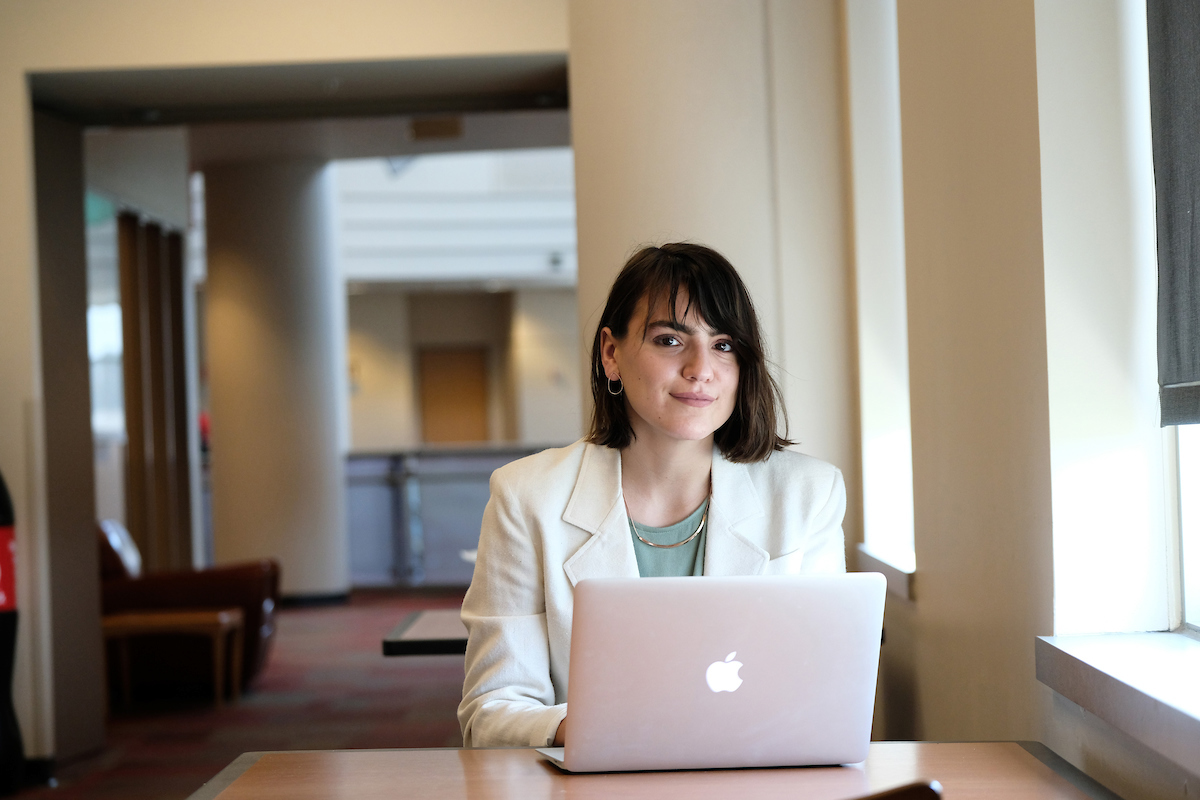
Jennifer Mossgraber is brainstorming potential projects focused on increasing civic engagement to work on during her yearlong Newman Civic Fellowship.
“I saw how she could see an issue that needed addressing, come up with a solution and implement it and do all that in a very short timeframe,” Manion said. “She was very effective at that.”
A letter of recommendation from Chancellor Tom George helped seal Mossgraber’s nomination.
The national fellowship has no financial component. It’s curriculum-based, providing students with access to webinars and regional conferences, as well as a national conference that will bring civic fellows from across the country together in Boston next fall.
Mossgraber also expects to come up with a project focused on increasing civic engagement – already a strength of the UMSL campus.
She’s hoping Manion, serving as her mentor, will be able to help her narrow the focus of what that might be.
“In social justice, you always hear, ‘Pick a cause,’” Mossgraber said. “You’re supposed to pick one thing, but how do you do that? How do you pick one thing? Especially how do you pick one thing and then also acknowledge intersectionality? Nothing exists in a vacuum. I’m working on it.”
She still has time to sort that out with her fellowship not set to begin until September, near the start of her senior year. But she’s already making plans for after graduation.
Mossgraber wants to go to law school to focus on labor issues.
“I’ve worked in restaurants for most of my adult life. That’s always how I’ve supported myself, and there are abuses I’ve seen of labor, of workers, of immigrants, of women,” Mossgraber said. “It’s just across the board. There are workplace abuses and it’s unregulated. It is one area that is sort of impenetrable to unionization, and it’s a problem.”
Manion thinks she’s be able to have an impact no matter what she chooses to do.
“She’s been strengthening her skills at doing outreach, with making connections, with speaking to elected officials and other folks, where it might be intimidating for a college student,” Manion said. “She’s doing that and becoming comfortable and making relationships that I think will be valuable to her not just to get into law school but in her career and her path beyond that.”


